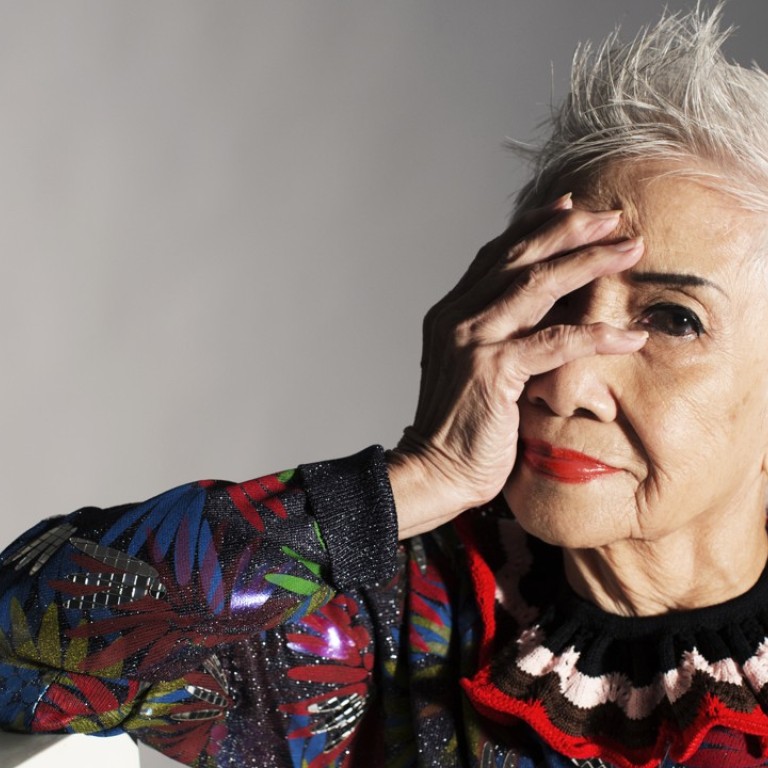
Why tackling Hong Kong’s silver tsunami goes beyond policy
As city ages, the answer to growing elderly issues may lie with the young, and it starts with smashing stereotypes
Model Alice Pang Sui-ying is a natural in front of the camera. She folds her arms and strikes a pose with a quiet confident smile amid the shutter clicks. Like a seasoned professional, she glides into her next pose in a sitting position, her hands cradling her chin, this time flashing teeth and offering the lens a more flamboyant look.
As the shoot winds down, Pang tucks her grey locks behind her ears, readying herself to review the snaps, which will grace a magazine cover.
She is 95 and a great-grandmother of five.
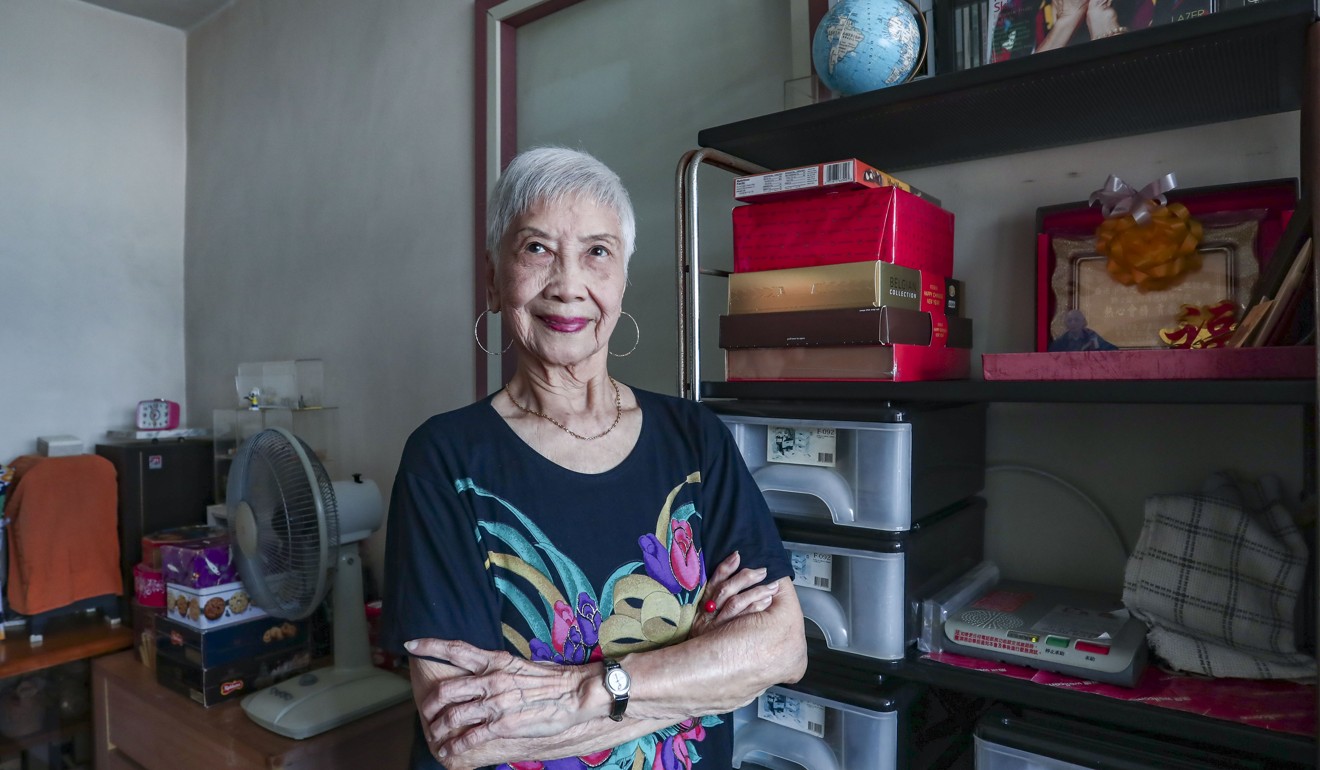
Pang smashes the stereotype of what a model should look like – or how old one should be. For her, age is but a number. She is sprightly, healthy and makes growing old look easy and fun.
“Why do I need to look old just because I am old? I want to look beautiful!” Pang, a picture of youthful exuberance mixed with mature elegance in a colourful one-piece dress, says.
Why do I need to look old just because I am old? I want to look beautiful
Her journey into the world of bright lights and glossy covers started a few years ago when her husband died, leaving her in pieces. Her granddaughter, Amy Lau Pui-kei, feared Pang would spiral into depression.
“She became antisocial and she didn’t go out as much. This wasn’t the woman I knew my whole life,” Lau, a doctor, says.
With Pang keeping to herself and staying home all the time, Lau worried that she would never find her way out of the shadows. Then, two years ago, the younger woman came across Ohh Dear Communications, the modelling agency that she would recommend to her grandmother.
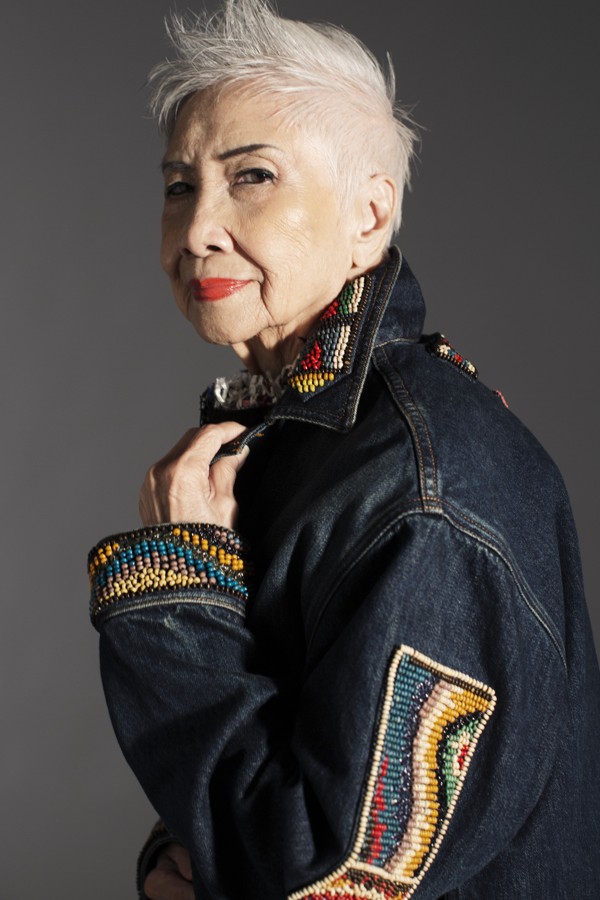
Lau says she believes it is important for young people to encourage elderly relatives to stay active in society.
In stark contrast, 91-year-old Chan Sui-chin lives a very different life to Pang’s.
The grandmother of three is up before the crack of dawn, not because she is looking forward to an exciting day, but because of constant leg pain that disrupts her sleep.
Dementia, poverty or a cry for attention? Shoplifting cases among Hong Kong’s elderly on the rise
Like many retirees in the city, she says she has nothing much to do for the rest of the day.
“I eat breakfast then just wait around to have lunch. After that, I may go out to walk a little, to keep my muscles from shrinking,” Chan says. “There isn’t much for me to do but to wait for death.”

Pang and Chan are among 340,000 Hongkongers aged 80 or above who are part of the city’s silver tsunami, an ageing trend which, according to government projections, will only accelerate in the coming 20 years.
The proportion of those over 65 will reach 23 per cent in 2024 and 30 per cent by 2034, mainly because of post-war baby boomers entering their twilight years.
With more elderly households and people aged above 80, can Hong Kong cope with its greying population?
By 2064, the number aged 65 and over will hit 2.58 million, making up about 35.9 per cent of Hong Kong’s population.
This huge demographic change will pose a grave challenge to the city, across issues centred on health care, social welfare, pensions and retirement practices, among many others.
In light of this, scholars and activists have called on society to adopt a different approach to how ageing is perceived.
A rising market
“Age is just a number. I don’t mind what other people say about the way I present myself,” Pang says.
Every morning, she wakes up at 8am and spends about 30 minutes preparing herself to look presentable for the day – combing her hair, picking a lipstick colour and matching pieces of jewellery with outfits.
Age is just a number. I don’t mind what other people say about the way I present myself
She says she puts in the effort as a form of respect to herself and to people she interacts with.
And it seems Pang’s attitude to life is gaining traction among others of her generation. Ohh Dear Communications, which recruits and represents models over the age of 50, said “classic” or “mature” models are getting more jobs because the global over-50 market is growing.
“There is a new market out there amid the rapidly ageing population,” Zip Cheung Ngai-ting, founder of the agency, says.
A term for this – banking on mature models to sell products – has even been coined: “greynaissance”.
Instead of focusing only on treatments such as anti-ageing creams and therapy, a whole industry has been spawned around offering a wide range of products and activities to enhance the well-being of elderly consumers.
According to Orbis Research, this emerging market was worth US$250 billion (HK$1.96 trillion) in 2016, and was expected to reach US$331.41 billion by 2021.
A bipolar grandmother faces jail in Hong Kong for an offence she can’t remember committing
British media have also reported that women over 50 spend about £6.7 billion (HK$70.3 billion) on clothes per year and have become the fastest-growing consumer segment in fashion.
“The elderly will need a variety of health care products, as well as different kinds of insurance or retirement and financial plans,” Cheung says, adding that such consumers will also want more mature models that they can identify with in commercials.
Ageing actively
Cheung admits that the market in Hong Kong is still small compared with international trends, as the concept of active ageing is still new to a traditional society.
She urged Hongkongers to break the stigma of ageing by bridging the gap between those who are over 50 and the rest of society.
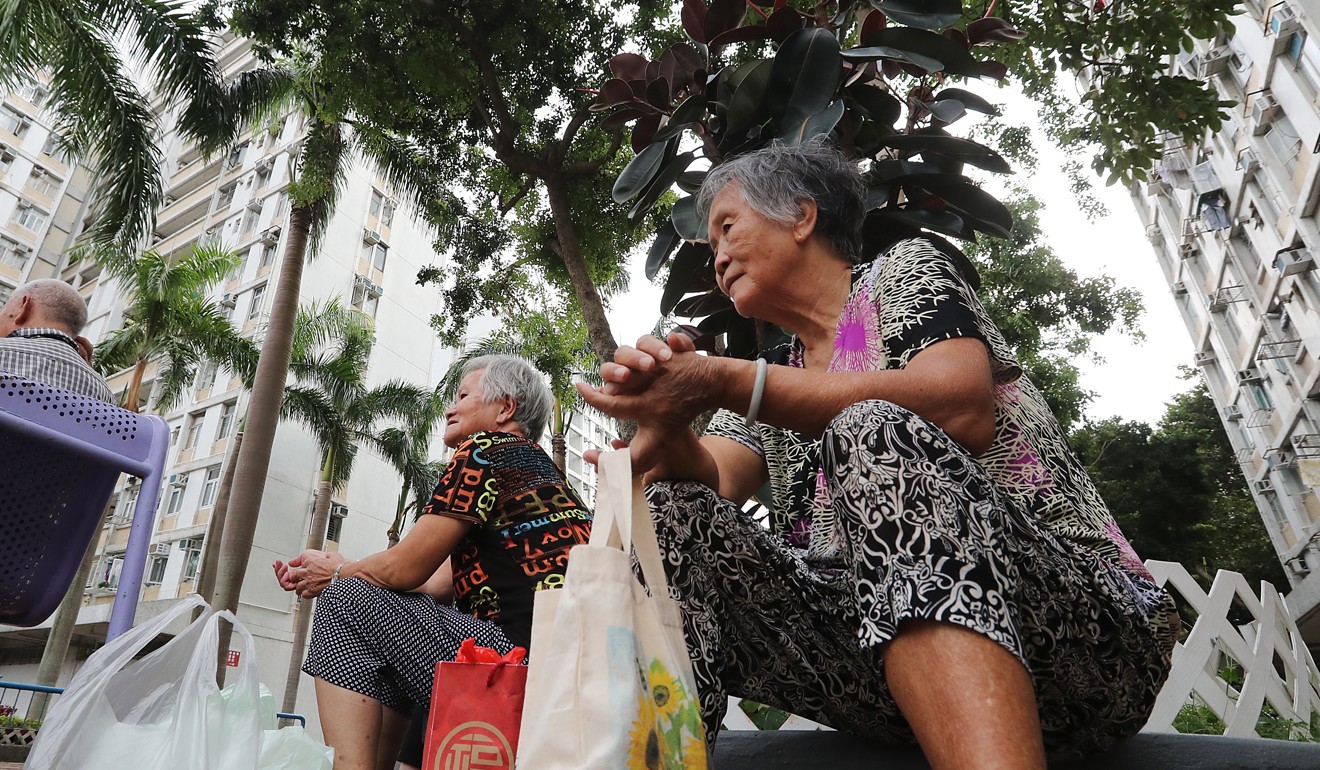
“Many people think once they retire, the clock counting down to their death starts,” Cheung says.
“We continue to brainwash people into thinking that when they reach 65, they become useless and are a burden to society.”
That could be part of why some consider increasing longevity a curse – in 2016 alone, 282 people over 65 killed themselves in the city.
How can Hong Kong get better carers for its ageing population?
The Post also reported earlier that the number of cases of elderly Hongkongers getting caught shoplifting has soared by more than 270 per cent over the past 16 years, from 445 arrests in 2001 to 1,650 in 2016. Social welfare experts attributed the rise to poverty, loneliness and illnesses such as dementia, arguing that the city’s elderly deserved greater attention.
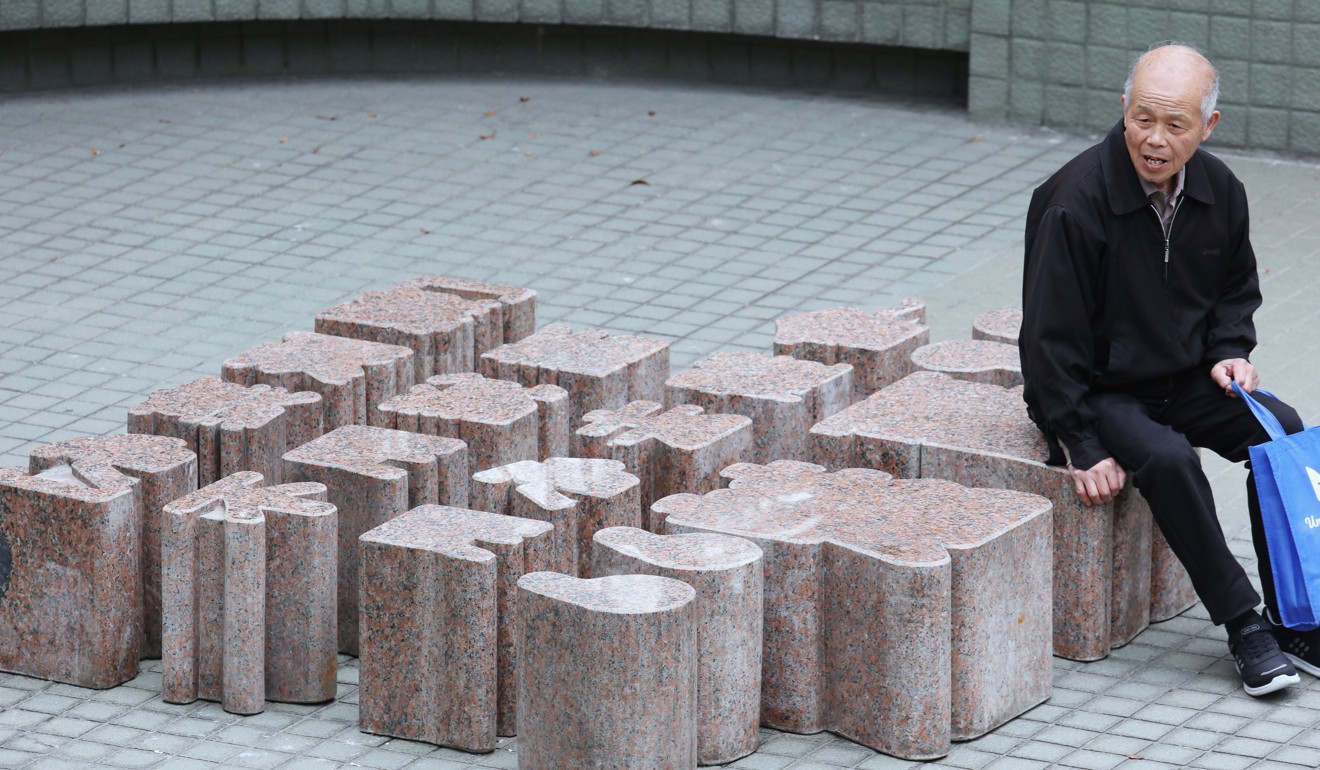
While officials and residents are increasingly cognisant of youth problems and student suicides, elderly issues are largely unacknowledged.
Professor Paul Yip Siu-fai, who specialises in population studies at the University of Hong Kong, says one of the reasons the elderly are vulnerable to depression and suicide is because of an inactive lifestyle and lack of a social life.
“When they’re just sitting at home, their minds wander and the idea of death comes up,” he says, stressing that with more exercise and social interaction, they will become happier. “Exercise maintains their motor skills and interactions make them feel connected to others.”
When they’re just sitting at home, their minds wander and the idea of death comes up
Professor Timothy Kwok Chi-yui, director of the Jockey Club Centre of Positive Ageing, adds that some elderly people are made to think they are useless to society.
“They do not want to be labelled as old, but because society perceives them as so, they have made a subconscious decision to stop learning and they distance themselves from the rest of society, believing they no longer fit in,” Kwok, who is also a geriatrician from the Hospital Authority, says.
“Young people are into the internet, but some of those who are over 60 may not even have WhatsApp. There is little common ground between the generations and therefore the elderly feel more isolated and unwanted.”
Kwok explains that human brains are “elastic”, and once they stop being active, they no longer “stretch” and can become rigid, causing the elderly in such situations to be less adaptable.
“If we do not use our brains proactively for a long time, the cells will not be as interconnected as they were, which explains a condition we see among the elderly in which they don’t function as well cognitively,” Kwok says.
Because society perceives them as old ... they have made a subconscious decision to stop learning and they distance themselves, believing they no longer fit in
Research has shown that even thoughts can help enhance brain health. Thinking positively about ageing actually lowers the risk of dementia because positive beliefs have a protective effect on the brain, according to a February report published by the US-based Yale School of Public Health.
The study, which polled 4,765 elderly respondents with an average age of 72, found those who viewed ageing in a positive light had a 43.6 per cent lower chance of developing dementia over four years compared with those who were more negative.
Last year, the commission launched an Elderly Services Programme Plan centred on improving the quality of elderly services and strengthening the planning of facilities, land, manpower and financial resources for the sector.
But Yip from HKU urges authorities to do more to change the culture and stigma around ageing.
“When we talk about active ageing, it’s not only about an elderly-friendly environment, but also about caring for their mental health,” he says, adding that the government should promote more intergenerational activities to encourage young people to take their elders out for community events.
Andrew Lau On-chun, a registered social worker at the Centre of Positive Ageing, suggests having empathy for the elderly and treating them as friends.
“Just strike up a chat with your elders – they love to talk about the past, their lives and their families. And when they do, the most important thing is just to listen, for they can tell the most amazing stories.”

Never too old to dream...
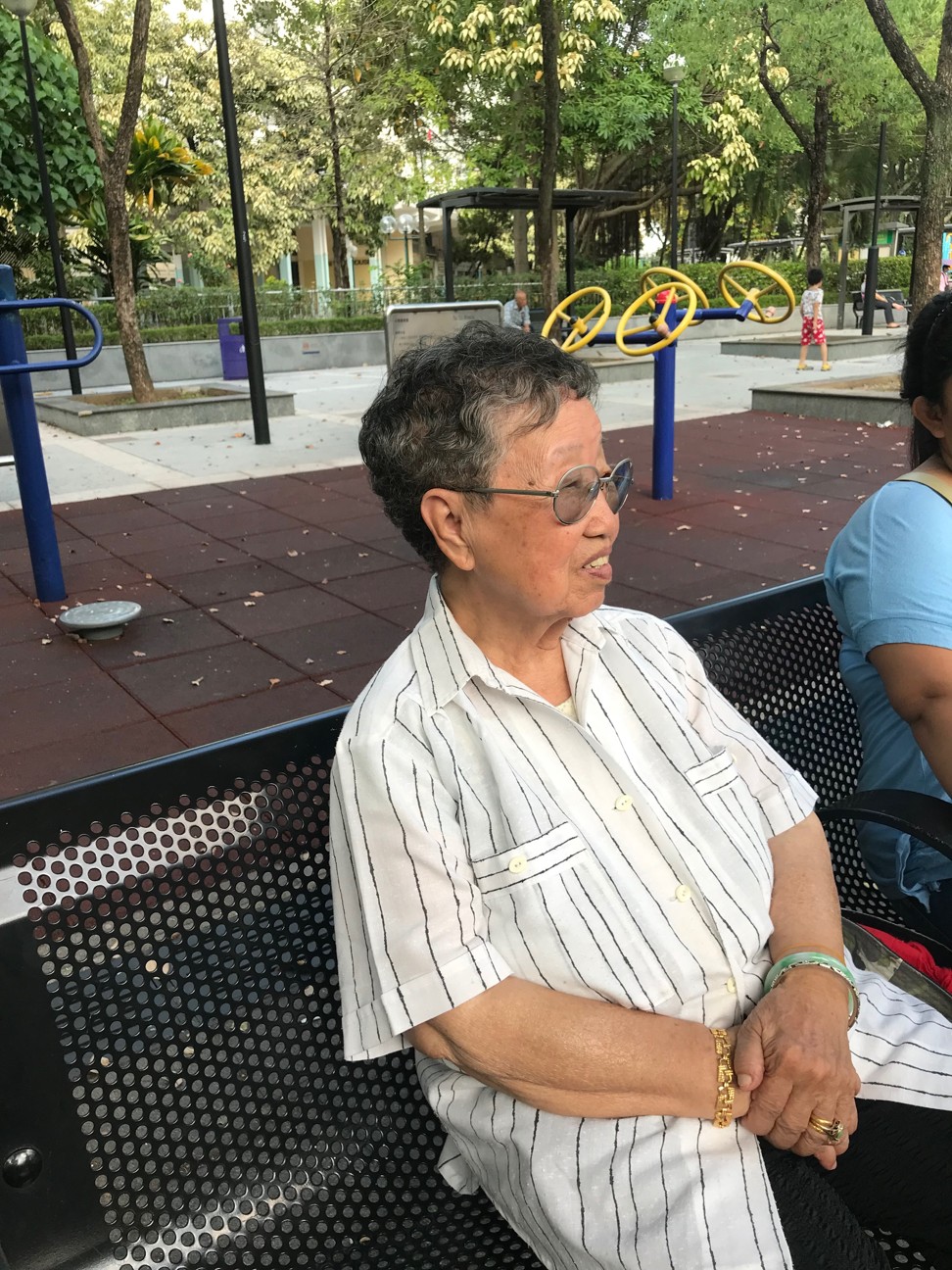
Name: Chan Siu-chin, 91
The grandmother of three would like to live out her dream of becoming a nurse.
Chan came to Hong Kong when she was only 20 and worked in a factory, retiring 15 years ago. After stepping down from the city’s workforce, Chan still does tailoring work as often as she can with the sewing machine her husband bought her.
“I am all in for the uniform,” Chan says laughing. “When I was younger, I was amazed at how nice the nurses were and they dressed in this pearly white dress, with the white shoes and the little hat. That is really the reason I want to become one.”
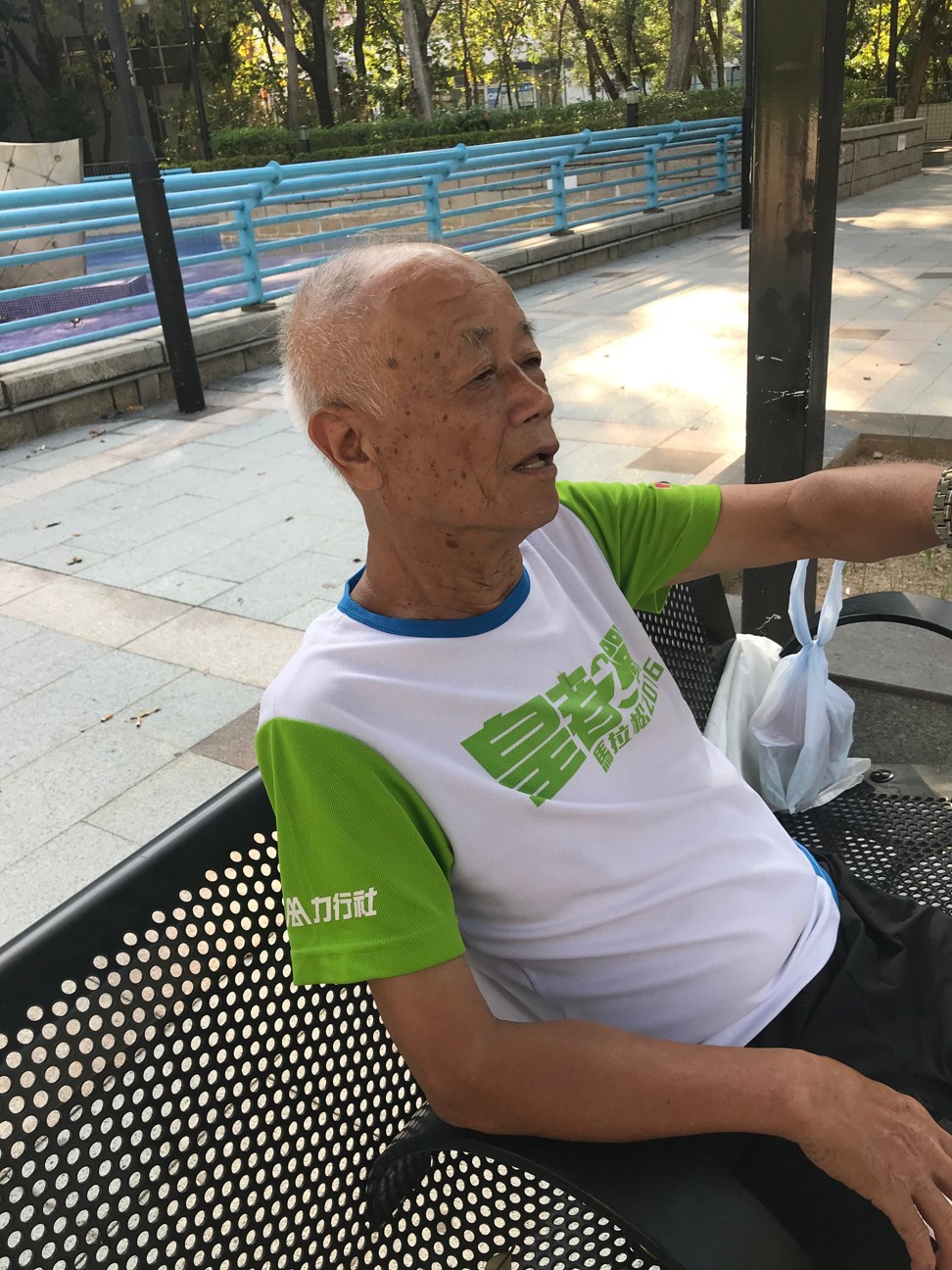
Name: Lui Woon-keung, 76
“My dreams? I am too old for that now,” says Lui, who was formerly a renovation worker. He now spends his retired days roaming around his neighbourhood, buying groceries and finding new restaurants to try out with his family. He used to be a coffee delivery boy, before he went into the remodelling business.
“When I was younger, I didn’t dare think about what I really wanted to be,” Lui says. “Once I became of age to work, I worked to earn money to help my parents out.
“Then I got married, and I worked for a renovation company because it paid my bills. Now my children are all grown up, have families and children of their own. So it worked out quite well, I have no regrets. I would do it all over again if I had to.”
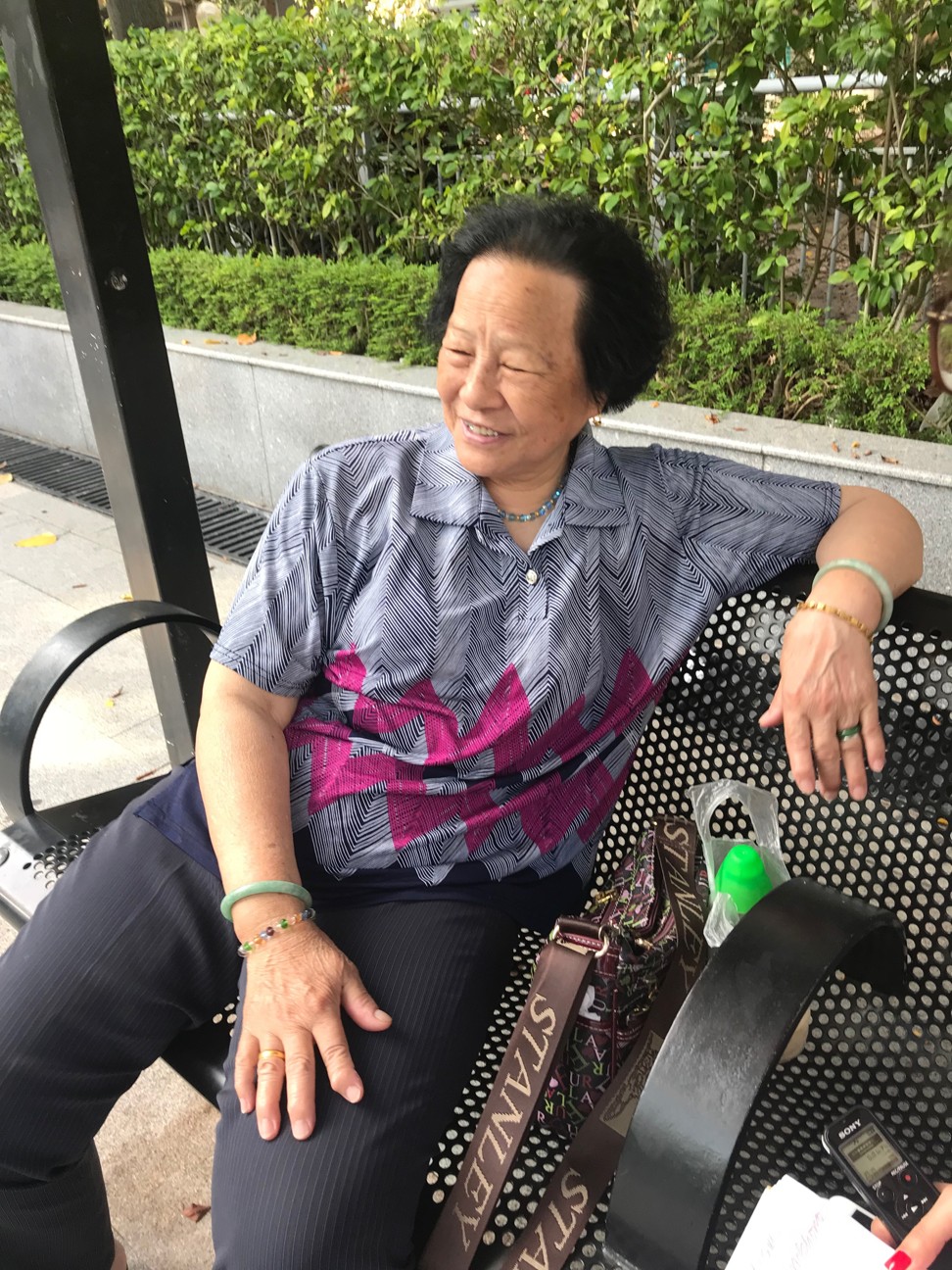
Name: So Pak-mui, 73
“My dreams have already come true,” the grandmother says. “It has been so rewarding to see my children grow up to be healthy and happy.”
Her working life as a fisherwoman only lasted a short time. After she got married, her husband offered her the luxury of staying at home to look after their children. She has been a housewife ever since, and now her children are all married, she is taking care of her grandchildren. She says her life has been blessed.
“To be able to see my grandchildren on a daily basis is such a wonderful feeling, just to see them learn and bloom into the person they’re supposed to be,” she says.
“Now it’s my task to take my grandchildren under my wings.”

